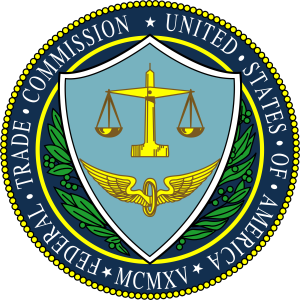 Last week, the FTC brought its first action against a social media influencer for failing to make appropriate disclosures on sponsored posts. While it had previously prosecuted companies who pay influencers for posts such as Lord & Taylor and Warner Brothers, this marks the first time the FTC has pursued an influencer.
Last week, the FTC brought its first action against a social media influencer for failing to make appropriate disclosures on sponsored posts. While it had previously prosecuted companies who pay influencers for posts such as Lord & Taylor and Warner Brothers, this marks the first time the FTC has pursued an influencer.
Articles Posted in Advertising
I, TweetBot: Are Fake Users Social Media’s Dirty Little Secret?
 President Donald Trump loves to tweet. Although he has been a prolific tweeter since his days as a reality TV star, during his presidential campaign and subsequent time in office, President Trump has taken the “Art of the Tweet” to new heights. The media, in return, has done its part in slicing, dicing, mincing, chopping, deconstructing, and otherwise analyzing President Trump’s Twitter use six ways to Sunday. (Covfefe, anyone?)
President Donald Trump loves to tweet. Although he has been a prolific tweeter since his days as a reality TV star, during his presidential campaign and subsequent time in office, President Trump has taken the “Art of the Tweet” to new heights. The media, in return, has done its part in slicing, dicing, mincing, chopping, deconstructing, and otherwise analyzing President Trump’s Twitter use six ways to Sunday. (Covfefe, anyone?)
Recently, though, it’s not just the content of President Trump’s tweets that has garnered attention. It’s also his audience.
Internet Vino Veritas: Rules and Guidelines for Social Media Efforts Related to Alcohol Sales
Every day, businesses extend more of their services to the internet in an effort to cater to millennials and upcoming generations of consumers. Those in the wine industry are no exception. Though somewhat slow to adopt online and digital marketing in the beginning, businesses in the alcohol industry are catching up. One site called the Tasting Room, touted as the fastest growing wine club in the country, offers an online questionnaire that can determine affordable wines that a customer supposedly would like and then deliver them directly to the customer’s door. Part of the assessment involves receiving a tasting kit for the consumer to taste and rate and then completing a survey on the company’s website. Tasting Room’s algorithm then determines appropriate wine selections for you. The customer also rates subsequent shipments so that the wine selections become even more finely tuned over time.
Murky Media: How Companies and Celebrities May Fall Short of the FTC’s “Clear and Conspicuous” Standard
Social media has become a must-have medium for most companies and celebrities. The medium provides an easy, inexpensive and instantaneous connection to customers and fans. However, as social media marketing continues to expand and evolve, so do concerns about deceptive advertising.
Warner Bros.’s “Paid to Play” Disclosures Draw FTC Action
Earlier this year, the Federal Trade Commission (FTC) went after Warner Bros. Home Entertainment Inc. for not clearly representing that several digital influencers were paid as part of a marketing campaign for the video game Middle Earth: Shadow of Mordor. (See our prior posts on FTC enforcement of its disclosure requirements.) According to the complaint, these influencers were paid amounts ranging from hundreds of dollars to tens of thousands of dollars and received advance-release copies of the game with instructions on how to promote the game. The sponsored videos were viewed more than 5.5 million times. One very popular influencer, Felix Kjellberg, known as “PewDiePie” on YouTube, created a video that has been viewed over 3.7 million times by itself.
The FTC Act and the Importance of Staying Transparent
 We’ve written previously on the rise in FTC scrutiny and enforcement regarding the use by companies of paid digital influencers without the proper disclosures. Recently, retailer Lord & Taylor found itself in the FTC’s crosshairs when it employed bloggers and Nylon magazine as part of a very successful campaign to promote a clothing collection online and on social media. Unfortunately, the campaign was less successful in its compliance with the FTC Act.
We’ve written previously on the rise in FTC scrutiny and enforcement regarding the use by companies of paid digital influencers without the proper disclosures. Recently, retailer Lord & Taylor found itself in the FTC’s crosshairs when it employed bloggers and Nylon magazine as part of a very successful campaign to promote a clothing collection online and on social media. Unfortunately, the campaign was less successful in its compliance with the FTC Act.
Along with colleagues Lori Levine and Lauren Lynch Flick, we’ve taken a closer look at the case in Lord & Taylor Case Shows the Importance of Transparency in Advertising, itself just the latest example of how companies can run into trouble when they fail to fully disclose a promotion or advertisement.
Beyond T-Shirts and Billboards: Contractor Advertising and Social Media
For businesses offering services requiring a contractor’s license in multiple states, the rules governing traditional contractor advertising can be complex enough in their own right. But when you add social media to the mix? Well, then knowing where to look and what rules to follow can become even more of a challenge.
Over on the construction and real estate law blog, Gravel2Gavel, colleagues Amy Pierce and Rob James have written two posts of interest to any contractors trying to navigate the often complex intersection between advertising and social media. The first, Contractor Advertising in the Age of Social Media, explores some of the hows and whys of this increased complexity. Its companion piece, A Resource Guide for Contractor Advertising on Social Media, provides what could be an invaluable starting point for any contractor wishing to take advantage of the immense potential for customer generation and relationship building present with social media platforms … without running afoul of the ever-changing, myriad state and municipal laws, regulations and guidance that govern such advertising.
Stay Transparent: FDA Compliance and Consumer-Generated Content
Colleague Caitlin Bloom Stulberg has recently released a thorough examination on FDA compliance in the realm of consumer-generated content.
It’s an issue we discuss often and is becoming more prevalent as increased social media use blurs the line between manufacturer-promoted advertising and independent consumer opinions. The discussion investigates when consumer-generated content may be imputed to a manufacturer and best practices to remain in compliance with FDA regulations.
As Reliance on “Digital Influencers” Grows, So Does FTC Enforcement
As we saw in a prior post regarding Kim Kardashian and Instagram, the FDA pays attention to how brand companies use paid celebrities to endorse their products. Likewise, the FTC closely scrutinizes how brand companies use paid or sponsored endorsers. Be it digital influencers or bloggers, brand companies must be mindful of the disclosures required to be made in connection with any advertisement or promotion disseminated by an endorser for the brand company. If the brand company provides compensation of any kind to the endorser in exchange for the promotion, FTC regulations require disclosure of this fact. Per the FTC’s 2013 .com Disclosures guidelines, the disclosure must be “clear and conspicuous.” If the brand company uses an advertising agency, the company must ensure that the agency is complying with the FTC’s regulations. Ultimately, the brand company can be held liable for FTC violations by its advertising agency.
Attention UGC Marketers—Are Your Permissions in Order?
Brand companies have come to view user-generated content as often one of the most effective and authentic ways to advertise their products or services. This is known as “user-generated content marketing.” For example, with the ubiquitous selfie, brand companies have discovered a rich supply of user-generated content. Consider a consumer who takes a selfie wearing a favorite pair of jeans, posts the photo on Instagram, and then tags the photo with #brandname. The jean company sees and likes the photo, re-posting it on the company website. Legal issues? If the consumer or user was hoping to get attention from the brand for the photo and opinions shared online, not at all. This is how many digital influencers get their start. But if the user was not seeking such attention? Then, problems can arise.
 Internet & Social Media Law Blog
Internet & Social Media Law Blog



